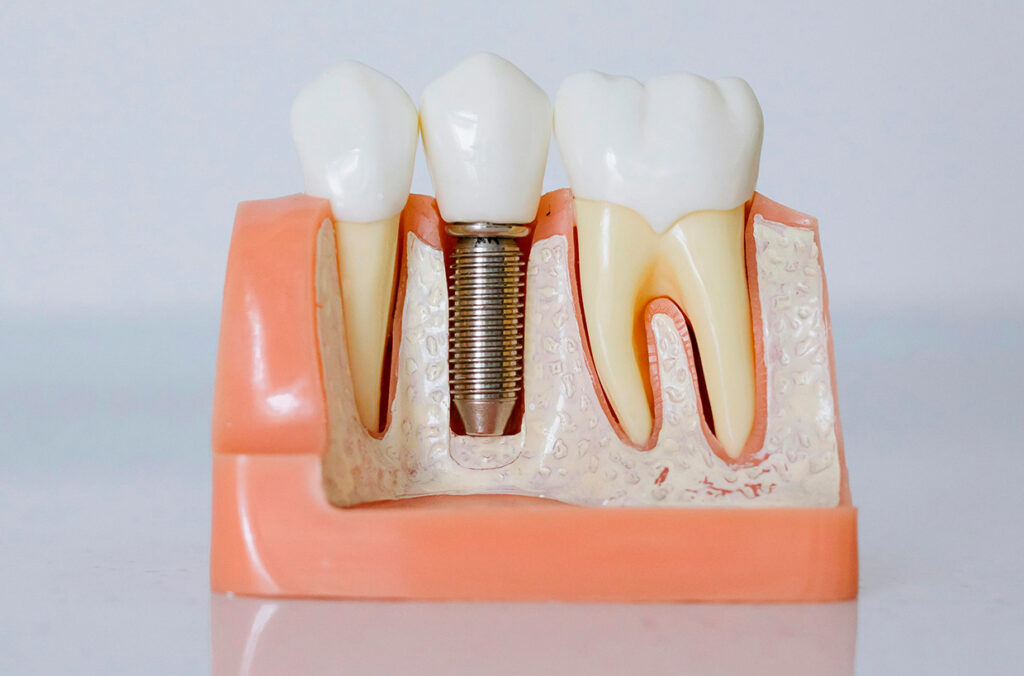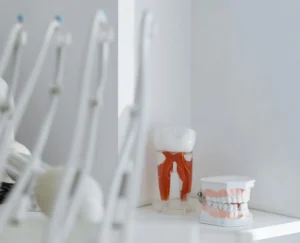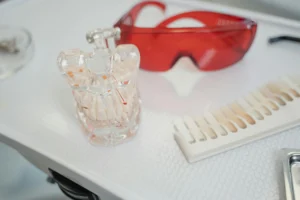Have you ever wondered what goes into making a beautiful, confident smile? For many, dental implants are the key to restoring both function and aesthetics. However, choosing the right implant involves more than just a visit to the dentist; it requires an understanding of the various dental implant materials and brands available. This blog will guide you through these choices, helping you make an informed decision for your dental health.
In this comprehensive guide, we’ll delve into the different materials used in dental implants, such as titanium and zirconia, and highlight leading brands like Straumann. You’ll learn about the pros and cons of each material, helping you understand which option might be best suited for your needs. Additionally, we’ll discuss how these materials can impact the longevity and success of your dental implants. By the end of this article, you’ll be well-equipped to make an educated decision about your dental implant options.
Let’s dive in and explore the fascinating world of dental implant materials and brands.
Understanding Dental Implant Materials
When considering dental implants, it’s crucial to understand the materials used in their construction. The two primary materials for dental implants are titanium and zirconia. Each offers unique benefits, making them suitable for different patient needs and preferences.
Dental implants have revolutionized the way we approach tooth replacement, providing a durable and aesthetically pleasing solution. However, the choice of material can significantly impact the implant’s success, longevity, and appearance. Let’s delve into the properties, benefits, and potential drawbacks of titanium and zirconia implants.
Properties of Titanium Implants
Titanium is the most commonly used material for dental implants due to its exceptional strength and biocompatibility. This metal integrates seamlessly with the jawbone in a process known as osseointegration, which is critical for the stability of the implant.
One of the key advantages of titanium is its durability. It can withstand the significant forces exerted during chewing and biting, making it a reliable long-term solution. Additionally, titanium is resistant to corrosion, ensuring that the implant remains intact over time.
Benefits and Drawbacks of Titanium Implants
The primary benefit of titanium implants is their high success rate. Studies have shown that titanium implants have a success rate of over 95%, making them a trusted choice for many dental professionals (Results in Chemistry).
However, there are potential drawbacks to consider. Some patients may have allergies or sensitivities to metals, which can lead to adverse reactions. Additionally, the metallic color of titanium can sometimes be visible through the gums, which may be a concern for patients seeking a more natural appearance.
Properties of Zirconia Implants
Zirconia, a ceramic material, is gaining popularity as an alternative to titanium. Its primary advantage is its tooth-like color, which provides a more natural look. This makes zirconia an excellent choice for patients who prioritize aesthetics.
Like titanium, zirconia is biocompatible and integrates well with the jawbone. It is also hypoallergenic, making it suitable for patients with metal sensitivities.
Benefits and Drawbacks of Zirconia Implants
The aesthetic advantage of zirconia implants is significant. They blend seamlessly with natural teeth, providing a pleasing appearance. Additionally, zirconia is resistant to corrosion and does not conduct heat or electricity, which can be beneficial for patients with certain sensitivities.
However, zirconia implants are relatively new compared to titanium, and long-term studies are still ongoing. While initial results are promising, more research is needed to fully understand their durability and performance over time.
Looking to replace a missing tooth? Delve into all the options that exist in our blog What are the best options for replacing missing teeth?
Comparing Titanium and Zirconia Implants
When choosing between titanium and zirconia implants, it’s essential to consider the specific needs and preferences of the patient. Here is a comparison of the key properties of each material:
- Strength and Durability: Titanium is known for its exceptional strength and durability, making it suitable for most patients. Zirconia, while strong, may not be as durable in the long term.
- Biocompatibility: Both materials are biocompatible, but zirconia is hypoallergenic, making it a better choice for patients with metal sensitivities.
- Corrosion Resistance: Both materials are resistant to corrosion, ensuring the longevity of the implant.
Ultimately, the choice between titanium and zirconia implants should be made in consultation with a dental professional, considering the patient’s specific needs and preferences.
Understanding the materials used in dental implants is crucial for making an informed decision. Both titanium and zirconia offer unique benefits and potential drawbacks. By considering factors such as strength, durability, aesthetics, and biocompatibility, patients can choose the implant material that best suits their needs.
Leading Dental Implant Brands
Choosing a reputable brand is crucial for the success of dental implants. Brands like Straumann, Nobel Biocare, and Zimmer Biomet are renowned for their quality and innovation. This section will explore the top brands, their unique features, and what sets them apart in the market.
When it comes to dental implants, the brand you choose can make a significant difference in the outcome of your procedure. Leading brands invest heavily in research and development to ensure their products are at the forefront of dental technology. Let’s take a closer look at some of the most respected names in the industry.
Straumann
Straumann is a Swiss company that has been a pioneer in the dental implant industry for over six decades. Known for their high-quality products and innovative solutions, Straumann implants are trusted by dental professionals worldwide.
The company offers a range of implant systems, including the Straumann Bone Level Implant and the Straumann Tissue Level Implant. These systems are designed to provide optimal stability and esthetics, making them suitable for a variety of clinical situations.
One of the key features of Straumann implants is their use of Roxolid®, a high-performance alloy that combines titanium and zirconium. This material offers superior strength and osseointegration, ensuring long-term success. According to a study published in the NCBI, Roxolid® implants have shown a higher survival rate compared to traditional titanium implants.
Nobel Biocare
Nobel Biocare is another leading name in the dental implant industry. Founded in Sweden, the company has a rich history of innovation and excellence. Nobel Biocare implants are known for their precision and reliability, making them a popular choice among dental professionals.
One of the standout features of Nobel Biocare implants is the TiUnite® surface, which promotes rapid osseointegration and long-term stability. This unique surface texture enhances bone growth and reduces the risk of implant failure.
Nobel Biocare also offers the All-on-4® treatment concept, which allows for the placement of a full arch of teeth on just four implants. This innovative solution provides patients with a fixed, non-removable prosthesis, improving both function and aesthetics.
ZimVie by Zimmer Biomet
Zimmer Biomet is a global leader in musculoskeletal healthcare, including dental implants. The company recently announced a spinoff company called ZimVie, where it has become renowned for its comprehensive range of implant solutions that cater to various clinical needs.
ZimVie’s Tapered Screw-Vent® Implant System is highly regarded for its versatility and ease of use. The system features a tapered design that mimics the natural shape of the tooth root, providing excellent primary stability.
Another notable innovation from ZimVie is the Trabecular Metal™ Technology. This material closely resembles the structure of natural bone, promoting faster and more reliable osseointegration. According to a study in the Journal of Clinical Periodontology, implants with Trabecular Metal™ Technology have shown improved bone growth and stability.
BioHorizons
BioHorizons is an American company that has gained a reputation for its advanced implant technologies and commitment to quality. The company offers a wide range of implant solutions, including the Tapered Internal and External Implant Systems.
One of the key features of BioHorizons implants is the Laser-Lok® surface technology. This patented surface treatment enhances soft tissue attachment and bone integration, reducing the risk of peri-implantitis and improving long-term outcomes.
BioHorizons is also known for its comprehensive educational programs and support for dental professionals. The company’s commitment to ongoing research and development ensures that their products remain at the cutting edge of dental implant technology.
Dentsply Sirona
Dentsply Sirona is a global leader in dental solutions, including implants. The company’s Astra Tech Implant System® is highly regarded for its innovative design and clinical success.
The Astra Tech Implant System® features the OsseoSpeed® surface, which promotes faster bone healing and long-term stability. This unique surface treatment enhances the biological response, ensuring reliable osseointegration.
Dentsply Sirona also offers the SmartFix® concept, which provides an efficient and cost-effective solution for edentulous patients. This treatment concept allows for immediate loading, giving patients a fixed provisional prosthesis on the day of surgery.
Choosing the right dental implant brand is essential for achieving successful outcomes. Brands like Straumann, Nobel Biocare, Zimmer Biomet, BioHorizons, and Dentsply Sirona have established themselves as leaders in the industry through their commitment to quality, innovation, and patient satisfaction.
For more information on dental implants and to explore your options, visit Aleriom. Our team of experts is here to guide you through every step of your dental implant journey.
Factors to Consider When Choosing Dental Implants
When it comes to selecting the right dental implants, several critical factors must be considered to ensure the best possible outcome. These factors range from the type of material used to the reputation of the brand, cost considerations, and individual health conditions. By understanding these elements, patients can make informed decisions that align with their specific needs and preferences.
Dental implants are a significant investment in both time and money, so it’s essential to weigh all options carefully. This section will guide you through the key factors to consider when choosing dental implants, helping you navigate the complexities of this important decision.
Material of the Implant
The material of the dental implant plays a crucial role in its success and longevity. The two primary materials used for dental implants are titanium and zirconia. Each material has unique properties that make it suitable for different patient needs.
Titanium is the most commonly used material due to its exceptional strength and biocompatibility. It integrates well with the jawbone, a process known as osseointegration, which is critical for the stability of the implant. Titanium implants are durable and can withstand the forces exerted during chewing and biting. However, some patients may have allergies or sensitivities to metals, which can lead to adverse reactions.
Zirconia, a ceramic material, is gaining popularity as an alternative to titanium. Its primary advantage is its tooth-like color, which provides a more natural look. Zirconia is also hypoallergenic, making it suitable for patients with metal sensitivities. However, zirconia implants are relatively new, and long-term studies are still ongoing to fully understand their durability and performance over time.
Brand Reputation
Choosing a reputable brand is crucial for the success of dental implants. Leading brands like Straumann, Nobel Biocare, and Zimmer Biomet are renowned for their quality and innovation. These brands invest heavily in research and development to ensure their products are at the forefront of dental technology.
Straumann offers a range of implant systems, including the Straumann Bone Level Implant and the Straumann Tissue Level Implant. These systems are designed to provide optimal stability and esthetics. Straumann implants use Roxolid®, a high-performance alloy that combines titanium and zirconium, offering superior strength and osseointegration.
Nobel Biocare is known for its precision and reliability. One of its standout features is the TiUnite® surface, which promotes rapid osseointegration and long-term stability. Nobel Biocare also offers the All-on-4® treatment concept, allowing for the placement of a full arch of teeth on just four implants.
Zimmer Biomet provides a comprehensive range of implant solutions, including the Tapered Screw-Vent® Implant System, known for its versatility and ease of use. Zimmer Biomet’s Trabecular Metal™ Technology closely resembles the structure of natural bone, promoting faster and more reliable osseointegration.
Cost Considerations
The cost of dental implants can vary significantly based on the material, brand, and complexity of the procedure. It’s essential to consider both the initial cost and the long-term value of the implant. While high-quality implants may have a higher upfront cost, they often provide better durability and success rates, reducing the need for future replacements or repairs.
Patients should also consider the cost of additional procedures that may be required, such as bone grafting or sinus lifts, which can add to the overall expense. It’s advisable to consult with a dental professional to get a comprehensive estimate of the total cost and explore financing options if necessary.
Individual Health Conditions
Individual health conditions play a significant role in the success of dental implants. Factors such as bone density, gum health, and overall medical history must be evaluated before proceeding with the implant procedure.
Patients with insufficient bone density may require bone grafting to provide a stable foundation for the implant. Additionally, those with gum disease must address this condition before implant placement to ensure proper healing and integration. It’s crucial to discuss any existing medical conditions, medications, or allergies with your dental professional to determine the best course of action.
Actionable Tips and Questions to Ask Your Dental Professional
To make an informed decision, consider asking your dental professional the following questions:
- What material do you recommend for my dental implant, and why?
- Which brand of dental implant do you use, and what are its benefits?
- What is the total cost of the implant procedure, including any additional treatments?
- How will my individual health conditions affect the success of the implant?
- What is the expected recovery time, and what post-operative care is required?
By addressing these questions, you can gain a better understanding of the process and make a decision that aligns with your needs and preferences.
Choosing the right dental implant involves careful consideration of various factors, including the material, brand reputation, cost, and individual health conditions. By understanding these elements and consulting with a dental professional, patients can make informed decisions that lead to successful outcomes.
For more information on dental implants and to explore your options, visit Aleriom. Our team of experts is here to guide you through every step of your dental implant journey.
Preparing for a dental procedure? Check out our blog Essential Questions to Ask Your Dentist Before a Dental Procedure
The Implant Procedure: What to Expect
Understanding the dental implant procedure can help alleviate anxiety and ensure a smooth experience. This section will walk you through the steps involved, from initial consultation to post-operative care. Knowing what to expect can help you feel more confident and prepared.
Dental implants are a significant investment in your oral health, and knowing the process can make it less daunting. Here’s a detailed overview of what you can expect during the implant procedure.
Initial Consultation and Planning
The first step in the dental implant process is an initial consultation with your dental professional. During this visit, your dentist will evaluate your oral health, discuss your medical history, and take X-rays or 3D scans of your jawbone. This helps determine if you are a suitable candidate for implants.
Your dentist will also discuss the different types of dental implants and materials available, such as titanium and zirconia. This is a good time to ask any questions you might have about the procedure, recovery, and costs. A personalized treatment plan will be created based on your specific needs and preferences.
Preparation and Pre-Surgery Steps
Before the surgery, you may need to undergo some preparatory procedures. These can include tooth extractions, bone grafting, or sinus lifts to ensure there is enough bone to support the implant. Your dentist will provide instructions on how to prepare for the surgery, including any dietary restrictions or medications to avoid.
It’s important to follow these instructions closely to minimize the risk of complications. You might also be advised to arrange for someone to drive you home after the procedure, as sedation or anesthesia will be used during the surgery.
The Implant Surgery
The implant surgery itself is typically performed in multiple stages. Here’s a step-by-step overview:
- Anesthesia: You will receive local anesthesia to numb the surgical area, and sedation may be provided to help you relax.
- Incision: The dentist will make an incision in your gum to expose the bone.
- Drilling: A small hole is drilled into the bone where the implant will be placed.
- Implant Placement: The titanium or zirconia implant is inserted into the hole.
- Stitching: The gum is stitched back over the implant to protect it during the healing process.
The duration of the surgery can vary depending on the number of implants being placed and the complexity of the case. Generally, it takes about 1-2 hours per implant.
Post-Surgery Care and Recovery
After the surgery, you will receive detailed instructions on how to care for the surgical site. This includes:
- Pain Management: Over-the-counter pain relievers or prescribed medications can help manage discomfort.
- Diet: Stick to soft foods and avoid hot or spicy foods that can irritate the surgical site.
- Oral Hygiene: Keep the area clean by gently rinsing with a saltwater solution and avoiding vigorous brushing near the implant site.
- Follow-Up Visits: Regular check-ups with your dentist to monitor the healing process and address any concerns.
It’s normal to experience some swelling, bruising, and minor bleeding after the surgery. These symptoms should subside within a few days. If you notice any signs of infection or if the pain persists, contact your dentist immediately.
Osseointegration and Abutment Placement
Osseointegration is the process where the implant fuses with the jawbone, providing a stable foundation for the artificial tooth. This can take several months, typically 3-6 months, depending on individual healing rates.
Once osseointegration is complete, a second minor surgery is performed to place the abutment. The abutment is a connector that holds the crown (artificial tooth) in place. During this procedure, the dentist reopens the gum to expose the implant, attaches the abutment, and then closes the gum tissue around it, leaving the abutment exposed.
Final Restoration
The final step is the placement of the crown. Your dentist will take impressions of your teeth to create a custom crown that matches the color and shape of your natural teeth. The crown is then attached to the abutment, completing the dental implant process.
This stage may involve a few visits to ensure the crown fits perfectly and looks natural. Once the crown is in place, you can enjoy the full function and aesthetics of your new tooth.
Long-Term Care and Maintenance
Proper care and maintenance are crucial for the longevity of your dental implants. Here are some tips to keep your implants in top condition:
- Oral Hygiene: Brush and floss regularly to keep your teeth and gums healthy. Consider using interdental brushes to clean around the implant.
- Regular Check-Ups: Visit your dentist for routine check-ups and professional cleanings. This helps detect any potential issues early on.
- Avoid Hard Foods: Refrain from chewing on hard foods or objects that can damage the implant or crown.
- Quit Smoking: Smoking can impair healing and increase the risk of implant failure. If you smoke, consider quitting to improve the success of your implants.
By following these guidelines, you can ensure the long-term success and functionality of your dental implants.
Conclusion
Understanding the dental implant procedure can help you feel more confident and prepared. From the initial consultation to the final restoration, each step is designed to ensure the best possible outcome. By following your dentist’s instructions and maintaining good oral hygiene, you can enjoy the benefits of your dental implants for years to come.
For more information on dental implants and to explore your options, visit Aleriom. Our team of experts is here to guide you through every step of your dental implant journey.
Making an Informed Decision for Your Dental Health
Choosing the right dental implant involves considering various factors, including the material, brand, cost, and individual health conditions. This blog post has provided a comprehensive overview of the primary materials—titanium and zirconia—and their unique benefits and drawbacks. Both materials offer excellent biocompatibility and durability, but your choice should align with your specific needs and preferences.
Additionally, we’ve explored the leading dental implant brands such as Straumann, Nobel Biocare, and Zimmer Biomet. These brands are renowned for their quality, innovation, and success rates, making them trusted choices for dental professionals worldwide. Understanding the features and advantages of these brands can help you make an informed decision that ensures the longevity and success of your dental implants.
It’s essential to consider the cost implications and any additional procedures that may be required, such as bone grafting or sinus lifts. While high-quality implants might have a higher upfront cost, they often provide better durability and success rates, reducing the need for future replacements or repairs. Consulting with a dental professional can help you understand the total cost and explore financing options if necessary.
Your individual health conditions, such as bone density and gum health, play a crucial role in the success of your dental implants. Addressing any pre-existing conditions and following post-operative care instructions are vital for a smooth recovery and long-term success. Regular check-ups and maintaining good oral hygiene are essential to keep your implants in top condition.
Key Takeaways
Here are some key takeaways to help you make an informed decision:
- Material Choice: Understand the benefits and drawbacks of titanium and zirconia implants.
- Brand Reputation: Choose reputable brands like Straumann, Nobel Biocare, and Zimmer Biomet for quality and innovation.
- Cost Considerations: Evaluate the total cost, including any additional procedures, and explore financing options.
- Health Conditions: Address any pre-existing health conditions and follow post-operative care instructions for a smooth recovery.
- Regular Maintenance: Maintain good oral hygiene and schedule regular check-ups to ensure the longevity of your implants.
For more information on dental implants and to explore your options, visit Aleriom. Our team of experts is here to guide you through every step of your dental implant journey. Schedule a consultation today to start your journey towards a brighter, more confident smile.








